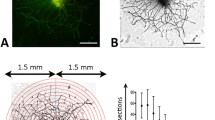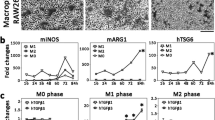Abstract
· Background: The outcome of keratorefractive procedures such as PRK and LASIK is limited by the wound-healing process in the corneal stroma, which gives rise to complications such as haze formation and regression. The proliferation and matrix synthesis of corneal stromal fibroblasts is the central element of the wound-healing process. In order to develop new therapeutic strategies to reduce wound-healing intensity, we investigated the effect of heparin on the proliferation of cultured human corneal stromal fibroblasts (HCF) alone and in the presence of growth factors. · Methods: Primary cultures of HCF were established using epithelium and endothelium-free explants. Secondary cultures of HCF (first passage), cultured in WM/F12 supplemented with 10 µg/ml transferrin and 10 µg/ml thyroglobulin (LR-1 medium), 1% fetal calf serum (FCS) and 10% FCS were used to determine the effect of heparin on the proliferation of HCF in concentrations ranging from 12.5 µg/ml to 5000 µg/ml. Cell number was determined using the CASY 1 cell counter system. Modulation of HCF proliferation by heparin (50 µg/ml and 2000 µg/ml) was also investigated under serum-free conditions and in the presence of bFGF, EGF and PDGF-BB. · Results: Addition of heparin led to a dose-dependent inhibition of proliferation after 6 days of incubation, which was statistically significant for 500–5000 µg heparin/ml (FCS 1%) and for 200–5000 µg heparin/ml (FCS 10%). IC50 values for this effect were determined to be approximately 700 µg heparin/ml. When cultured under serum-free conditions (LR-1), a significant reduction of cell number was only observed with 5000 µg heparin/ml. There was no significant modulation of PDGF-BB-, bFGF-, or EGF-stimulated cell proliferation by heparin at concentrations of 50 µg/ml and 2000 µg/ml after 6 days of incubation. · Conclusion: Our observations indicate that heparin can inhibit proliferation of HCF effectively. The results of the present study could eventually pave the way to prevent anterior stromal haze formation and regression after keratorefractive surgery.
Similar content being viewed by others
Author information
Authors and Affiliations
Additional information
Received: 23 April 1998 Revised version received: 12 August 1998 Accepted: 13 August 1998
Rights and permissions
About this article
Cite this article
Denk, P., Knorr, M. Effect of heparin on human corneal fibroblast proliferation in vitro with and without growth factor stimulation. Graefe's Arch Clin Exp Ophthalmol 237, 342–347 (1999). https://doi.org/10.1007/s004170050242
Issue Date:
DOI: https://doi.org/10.1007/s004170050242




